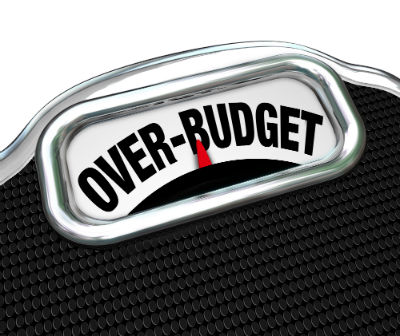 There are some key business metrics in your bookkeeping system that you may or may not be aware of. Most business owners look at their bookkeeping one of two ways; a means to filing taxes or a tool that they can use to grow their business. Your bookkeeping system should be a machine that you use to make key business decisions. A bookkeeping system that feeds you information on your key business metrics will help you make smart business decisions and scale your business. Below are a few business metrics worth taking a look at in your bookkeeping.
There are some key business metrics in your bookkeeping system that you may or may not be aware of. Most business owners look at their bookkeeping one of two ways; a means to filing taxes or a tool that they can use to grow their business. Your bookkeeping system should be a machine that you use to make key business decisions. A bookkeeping system that feeds you information on your key business metrics will help you make smart business decisions and scale your business. Below are a few business metrics worth taking a look at in your bookkeeping.
Customer Profitability and the 80/20 Rule
One thing that you should take a look at is customer profitability. If you are doing a good job with your bookkeeping you should know how much money each customer brings in during a certain period and also how much time your business spends servicing that particular customer. We refer to this as an effective hourly rate.
Going through this analysis allows you to easily spot customers that are very profitable for your business. As you look over the list you will also see those rates that are quite a bit lower. Are those clients a good fit? Do you need to raise the rate?
Most everyone reading this has likely heard of the 80/20 rule. Basically the 80/20 rule says that 80% of your outcomes are a result of 20% of your inputs. A classic business example of the 80/20 rule is that 80% of your revenues come from 20% of your customers. If that is true wouldn't it be a smart decision to focus on only bringing in those customers that are optimal for your business? Hmmm...something to think about.
Ability to Spend Money
Another way I use our bookkeeping to grow the business is making a justification to spend money. Some businesses spend money impulsively or based on gut feelings. My favorite example of this is when a business is considering hiring a new employee.
Businesses often hire employees based on a feeling rather than data. When you get very busy in your business often the first instinct is to hire help. I don't have a problem with that gut feeling to hire someone; I just think it needs to be justified quantitatively.
First you should look at the financial costs associated with your gut feeling to hire someone. How much is this really going to cost? Take a look at payroll costs, taxes, equipment, training costs etc. Take that analysis and plug it into your financial forecast. Now you have a look at your predicted net income if you take this expense on. Are you ok with your bottom line or are you getting ahead of yourself on this new hire?
It's good to spend money and invest in your business you just need to justify your expenses before you incur them. Plug your proposed larger expenditures into your budget and analyze whether you can afford them or not.
Return on Investment
If you are going to invest in anything you want to track your return on that investment. Your bookkeeping system definitely has the capability to track your return on investment (ROI) for you if set up correctly.
Let's take the classic example of trying to determining your ROI on advertising. If you were going to invest in some sort of advertising you would need some statistics on your conversion rates from a program like Hubspot or Google Analytics. Once you have that it's pretty straightforward math. What are your sales goals? How many new customers will it take to hit those goals? How many leads are needed to produce those customers? How many web visits do you need in order to produce that number of leads? How much will it cost you to produce that many visitors? There are metrics behind everything, and it's easy to use them to your advantage.
Now all you have to do is plug in your sales goals and advertising spend into your budget and monitor it. After your predetermined period has passed for your advertising spend calculate your ROI.
I want to stress that it is really important that you develop a set of key performance indicators to monitor that are customized to your business. The examples I gave are some that I have seen commonly used in many service based businesses. Every business is different so you need to develop customized business metrics to monitor for your business.
What useful business metrics are most important to you?






